Welcome to Adhiyamaan College of Engineering *** Admission Open for the Academic Year 26-27 *** Accredited with NAAC "A" Grade in the 3rd Cycle***
Center for Faculty Development
The CFD is being established with the primary objective of enhancing the teaching and research capabilities of our faculty members through continuous professional development programs.
Objectives of the CFD
- Professional Growth: To provide structured opportunities for faculty to enhance their academic and research skills.
- Innovation in Teaching: To introduce and promote innovative teaching methodologies and technologies.
- Research Advancement: To facilitate and support faculty in their research activities and collaboration opportunities.
- Leadership Development: To nurture leadership qualities among faculty members through specialized training programs.
- Quality Assurance: To ensure that faculty development aligns with the highest standards of academic excellence.
Functions of the CFD
- Organize workshops, seminarsand traimng sessions focused on pedagogical strategies, research methodologies and leadership skills.
- Coordinate with external experts and institutions for specialized training programs.
- Provide resources and support for faculty pursuing research projects and higher education.
- Facilitate the exchange of ideas and best practices among faculty members across different departments.
- Monitor and evaluate the impact of faculty development programs to ensure continuous improvement.
Committee Members
| S. No. | Name of the Member | Designation | Department | Profession |
|---|---|---|---|---|
| 1 | Dr. Santhi K | Professor and Head | EEE | Coordinator |
| 2 | Dr. Dhanasekaran M | Professor and Head | MBA | Co-Coordinator |
| 3 | Dr. Swamydoss D | Professor and Head | MCA | Member |
| 4 | Dr. Sumathi S | Professor and Head | ECE | Member |
| 5 | Dr. Seetha R | Professor and Head | Arch. | Member |
| 6 | Ms. Sakthidevi I | Assistant Professor | IT | Member |
Events Organized
One Day Workshop on "CDIO framework – An Introduction"
Date: Feburary 1, 2025
Organized by: Center for Faculty Development
Resource Person: Dr. R. Radhakrishnan, Principal, Adhiyamaan College of Engineering, Hosur
The Centre for Faculty Development organized a session on the CDIO Framework, which stands for Conceive – Design – Implement – Operate. It is an innovative educational framework developed to reform and enhance engineering education worldwide. Read more ...
Objectives
- Engineering Lifecycle Focus – The CDIO framework is based on the real-world engineering process: Conceive, Design, Implement, and Operate products and systems.
- Hands-on Learning – Emphasizes practical, project-based learning where students apply theoretical knowledge to real engineering challenges.
- Skill Development – Builds not only technical competence but also personal, interpersonal, and professional skills such as teamwork, communication, and ethics.
- Structured Curriculum – Provides a set of 12 CDIO Standards to guide curriculum design, teaching methods, and assessment for continuous improvement.
- Global Adoption – Implemented by universities worldwide to produce innovative, industry-ready engineers equipped for modern technological environments.
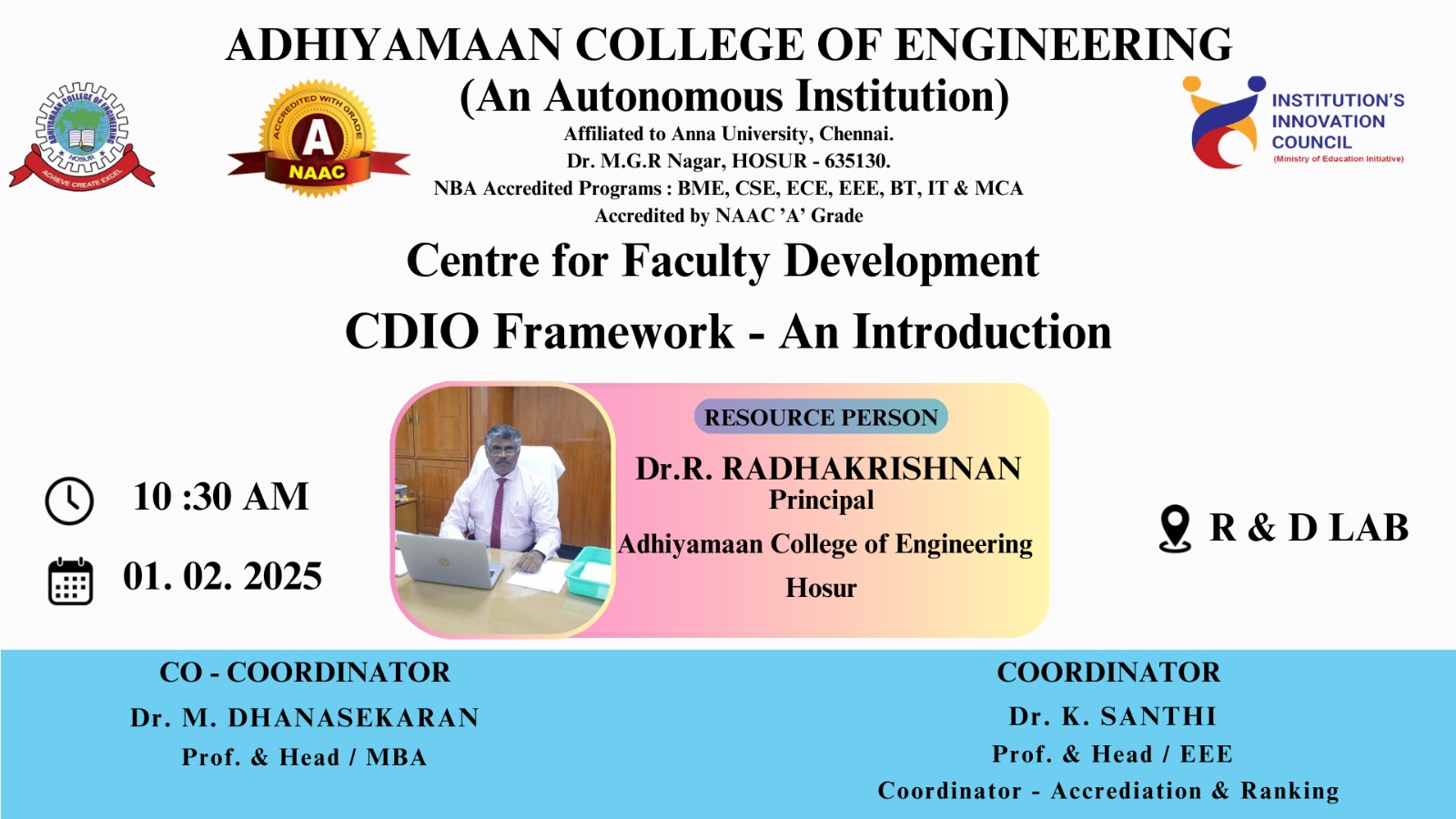 |
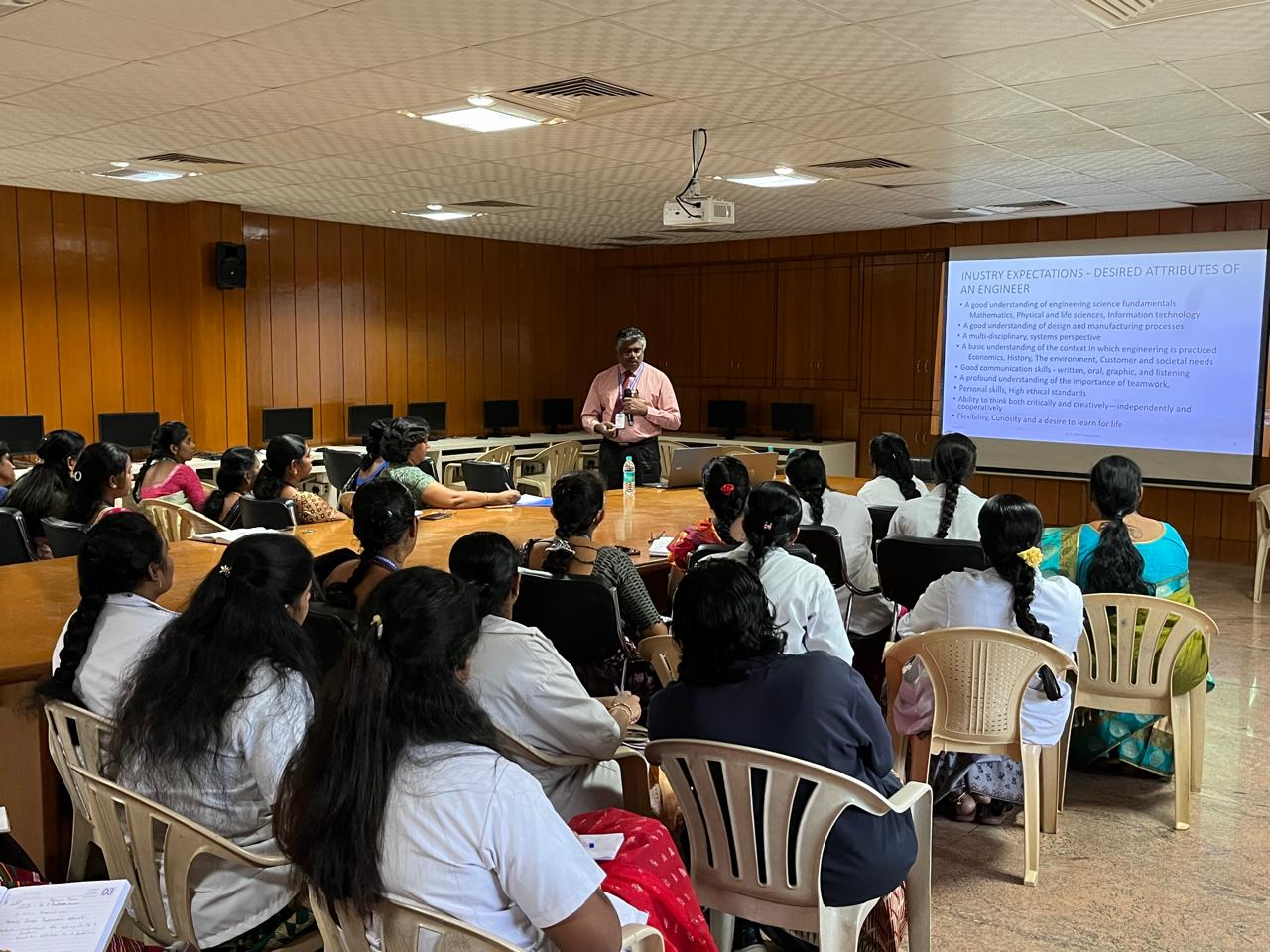 |
One Day Workshop on "ETHICS AND INNOVATION IN TEACHING"
Date: December 4, 2024
Organized by: Center for Faculty Development
Resource Person: Dr. D Swamydoss, HoD / MCA, Adhiyamaan College of Engineering, Hosur
The Centre for Faculty Development aimed Ethics and innovation are two essential pillars of modern education. Ethics in teaching refers to the moral principles and professional conduct that guide educators in ensuring fairness, integrity, respect, and responsibility in Read more ...
Objectives
- Moral Foundation in Education – Emphasizes the importance of ethical values such as honesty, fairness, respect, and responsibility in the teaching profession.
- Professional Conduct – Encourages teachers to follow ethical standards in decision-making, assessment, and relationships with students, colleagues, and the community.
- Innovative Teaching Methods – Promotes creative and modern instructional approaches like digital learning, project-based activities, and blended teaching techniques.
- Technology Integration – Utilizes technology and digital tools responsibly to enhance student engagement, collaboration, and personalized learning experiences.
- Student-Cantered Learning – Focuses on developing critical thinking, creativity, and problem-solving skills through ethical and innovative educational practices.
- Lifelong Learning and Adaptability – Encourages educators to continually update their skills, knowledge, and teaching strategies to meet changing educational needs.
- Social and Global Responsibility – Instils awareness of social, cultural, and environmental responsibilities among both teachers and students.
- Quality and Integrity in Education – Ensures that innovation in teaching maintains high academic standards, authenticity, and integrity in all educational practices.
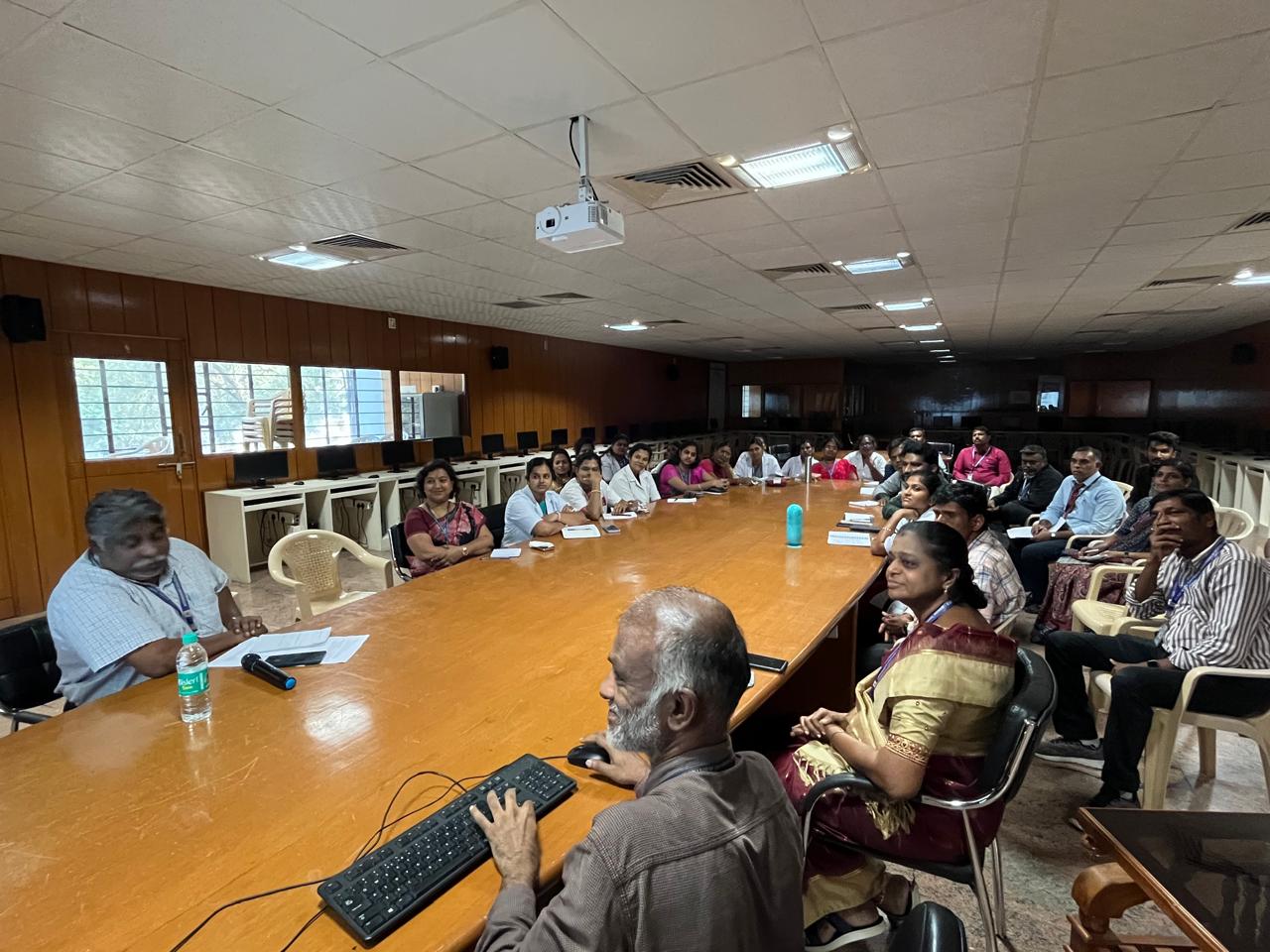 |
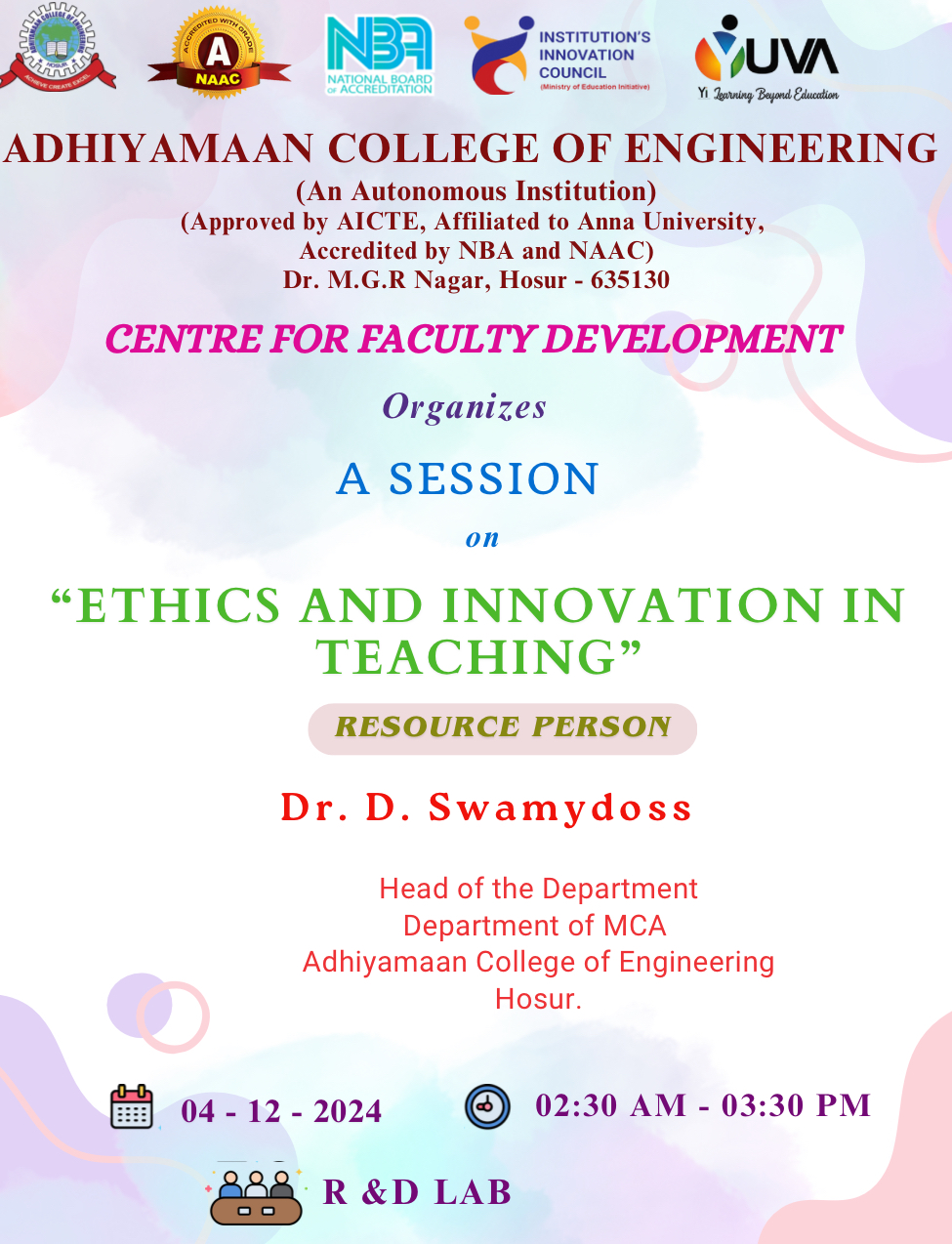 |
One Day Workshop on "NBA: New SAR Brain storming session"
Date: October 19, 2024
Organized by: Center for Faculty Development
Resource Person: Dr. K. Santhi HoD/EEE Coordinator – Accreditation & Ranking, Adhiyamaan College of Engineering, Hosur
Centre for Faculty Development aimed Ethics and innovation are two essential pillars of modern education. Ethics in teaching refers to the moral principles and professional conduct that guide educators in ensuring fairness, integrity, respect, and responsibility Read more ...
Objectives
- Moral Foundation in Education – Emphasizes the importance of ethical values such as honesty, fairness, respect, and responsibility in the teaching profession.
- Professional Conduct – Encourages teachers to follow ethical standards in decision-making, assessment, and relationships with students, colleagues, and the community.
- Innovative Teaching Methods – Promotes creative and modern instructional approaches like digital learning, project-based activities, and blended teaching techniques.
- Technology Integration – Utilizes technology and digital tools responsibly to enhance student engagement, collaboration, and personalized learning experiences.
- Student-Cantered Learning – Focuses on developing critical thinking, creativity, and problem-solving skills through ethical and innovative educational practices.
- Lifelong Learning and Adaptability – Encourages educators to continually update their skills, knowledge, and teaching strategies to meet changing educational needs.
- Social and Global Responsibility – Instils awareness of social, cultural, and environmental responsibilities among both teachers and students.
- Quality and Integrity in Education – En sures that innovation in teaching maintains high academic standards, authenticity, and integrity in all educational practices.
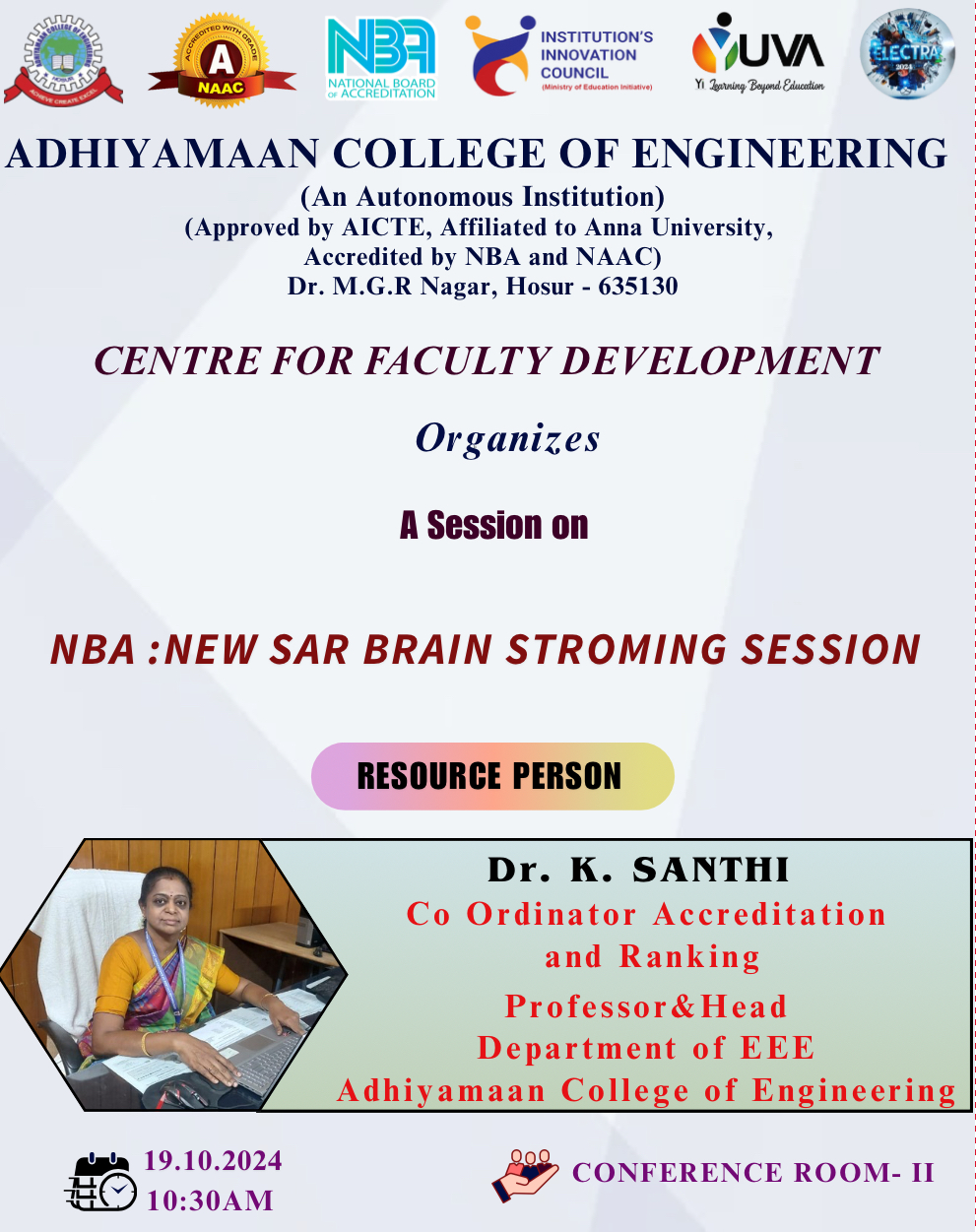 |
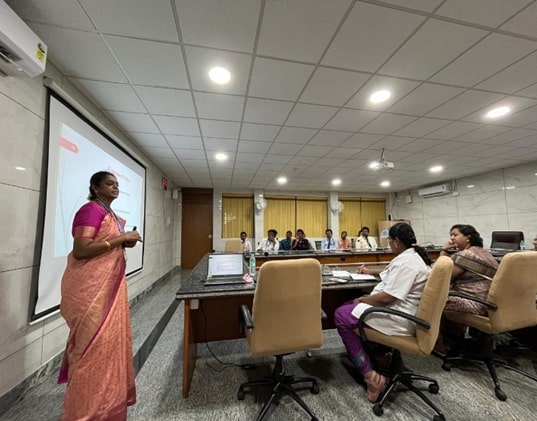 |
One Day Workshop on "AI Tools for Learning & Teaching"
Date: September 21, 2024
Organized by: Center for Faculty Development
Resource Person: Dr. VENKATESAN SELVAM, Dean-Academics, Adhiyamaan College of Engineering
The workshop on "AI Tools for Learning & Teaching" was conducted to equip educators with the knowledge and skills needed to integrate artificial intelligence into their teaching methodologies. With the rapid advancement of technology in education, understanding and utilizing AI tools is essential for enhancing the learning experience. Read more ...
Objectives
- To introduce participants to various AI tools applicable in educational settings.
- To demonstrate practical applications of AI in improving teaching and learning.
- To foster discussion on the challenges and opportunities presented by AI in education.
 |
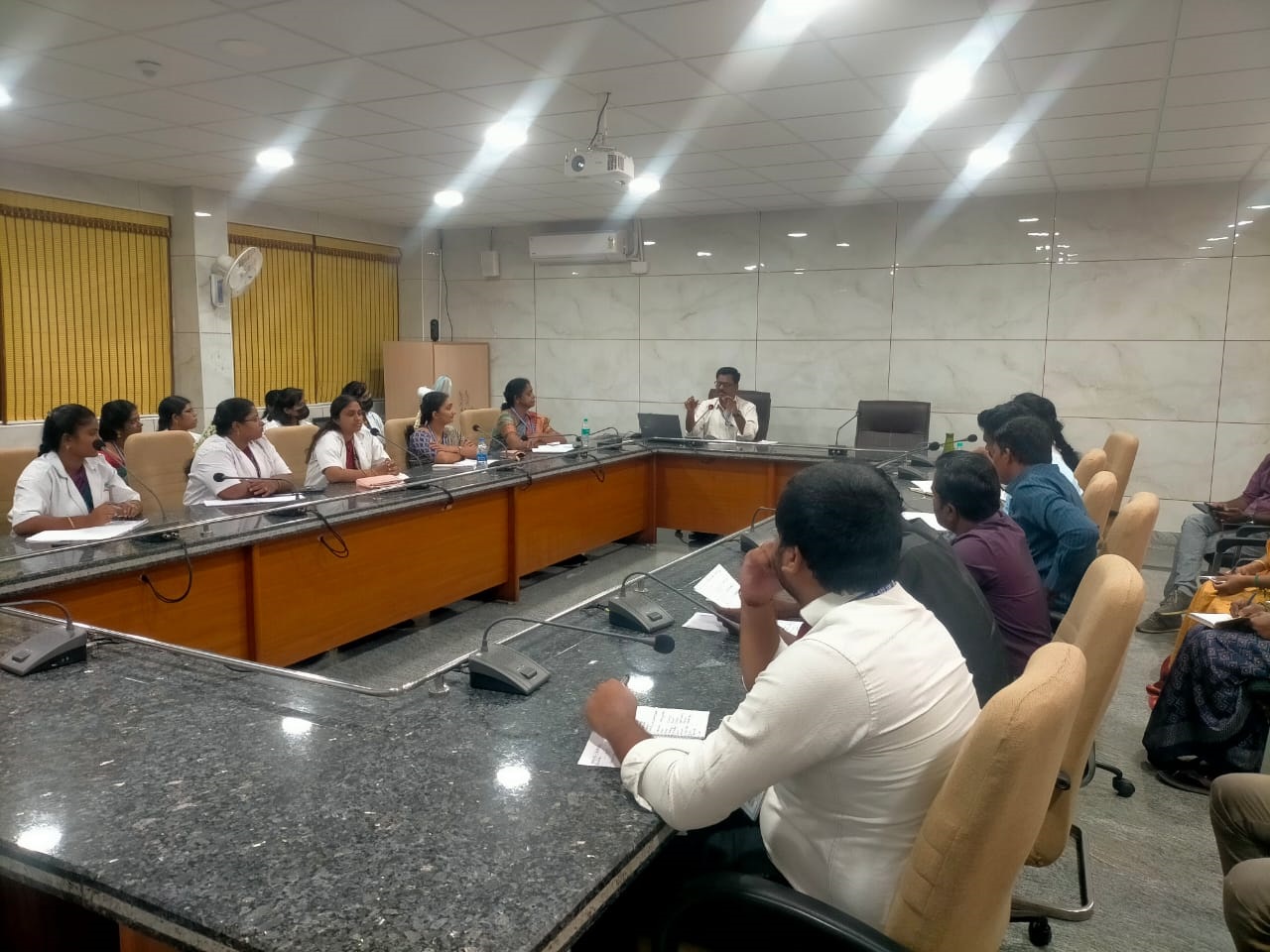 |
One Day Workshop on "Outcome Based Teaching and Learning Process"
Date: October 19, 2024
Organized by: Center for Faculty Development
Resource Person: Dr. K. Santhi, Professor & HoD/EEE and Coordinator for Accreditation and Ranking
The workshop on Outcome-Based Teaching and Learning (OBTL) aimed to equip educators with the knowledge and skills necessary to implement OBTL principles in their teaching practices. The session provided insights into defining clear learning outcomes, aligning assessments, and fostering active learning environments. Read more ...
Objectives
- Understand OBTL principles and their significance in education.
- Develop clear learning outcomes for specific courses or programs.
- Explore effective teaching strategies that align with desired outcomes.
- Design assessments that measure student achievement of learning outcomes.
- Engage in collaborative activities to enhance practical understanding of OBTL.
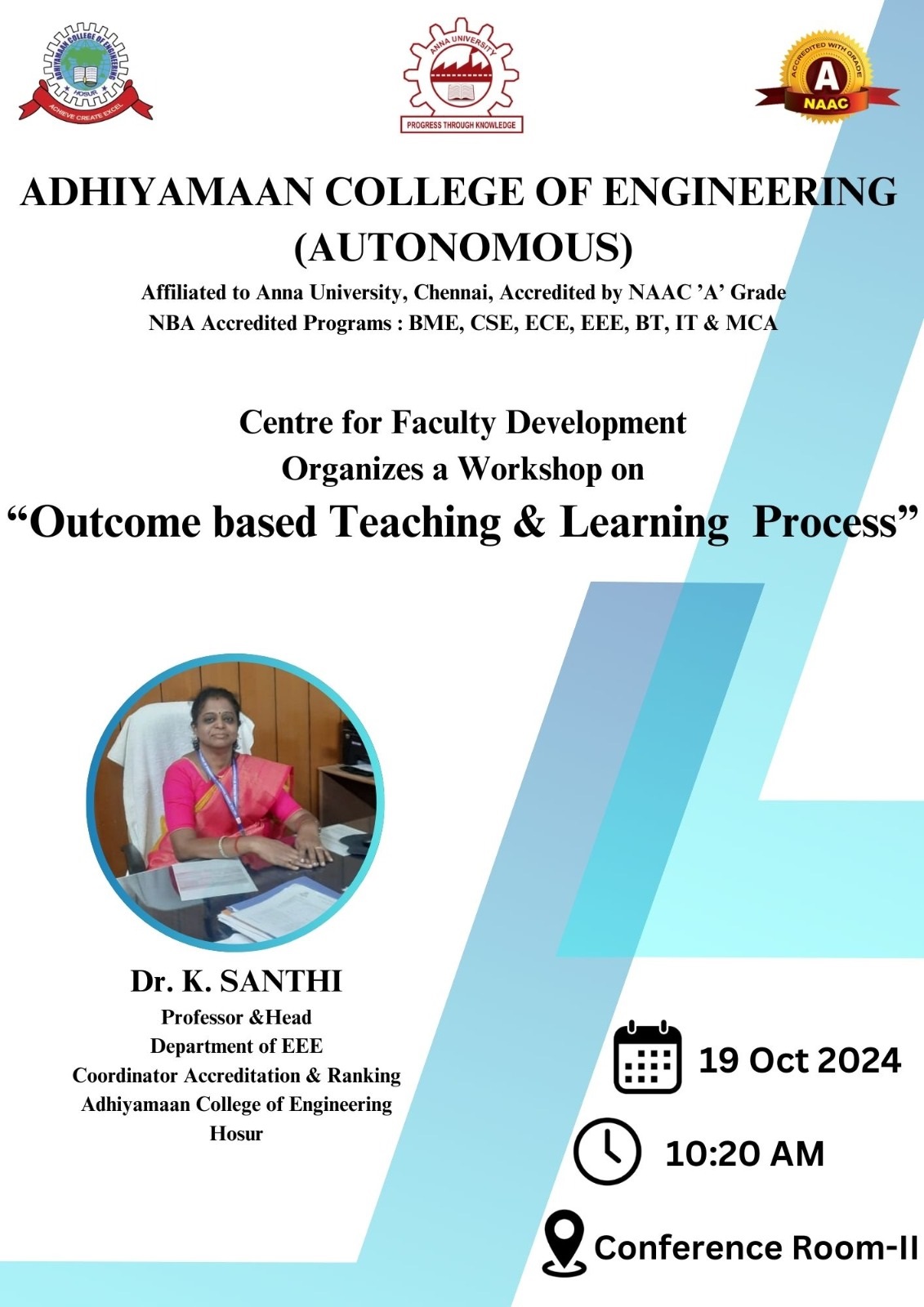 |
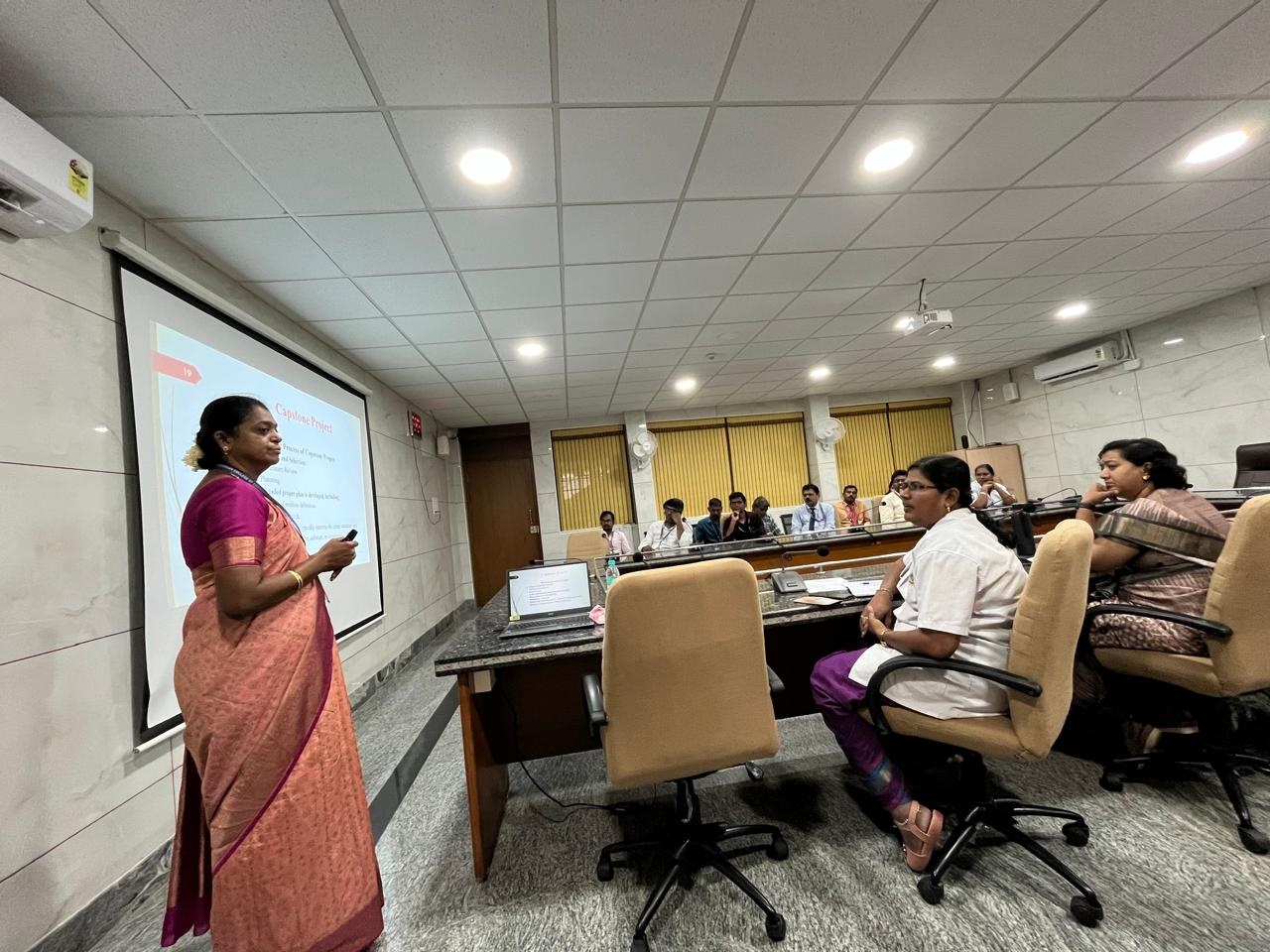 |